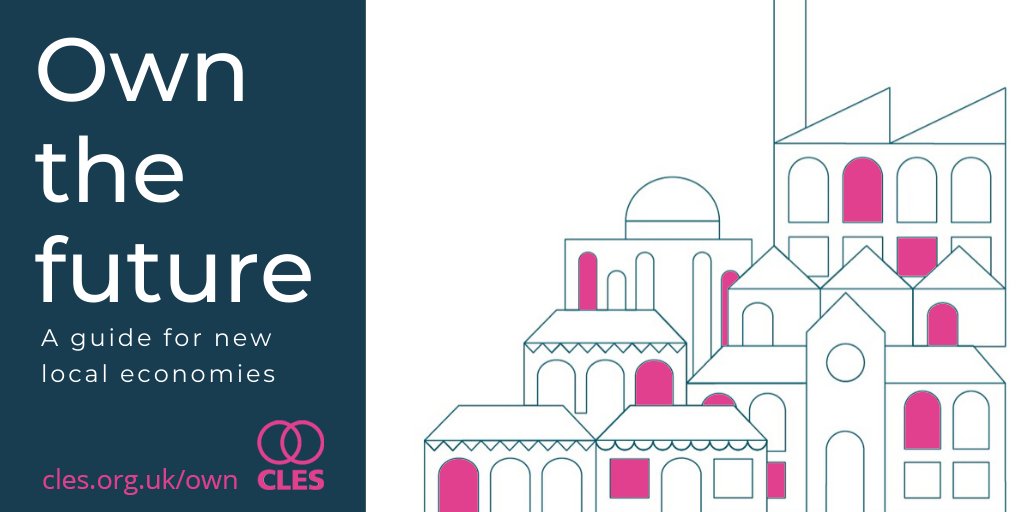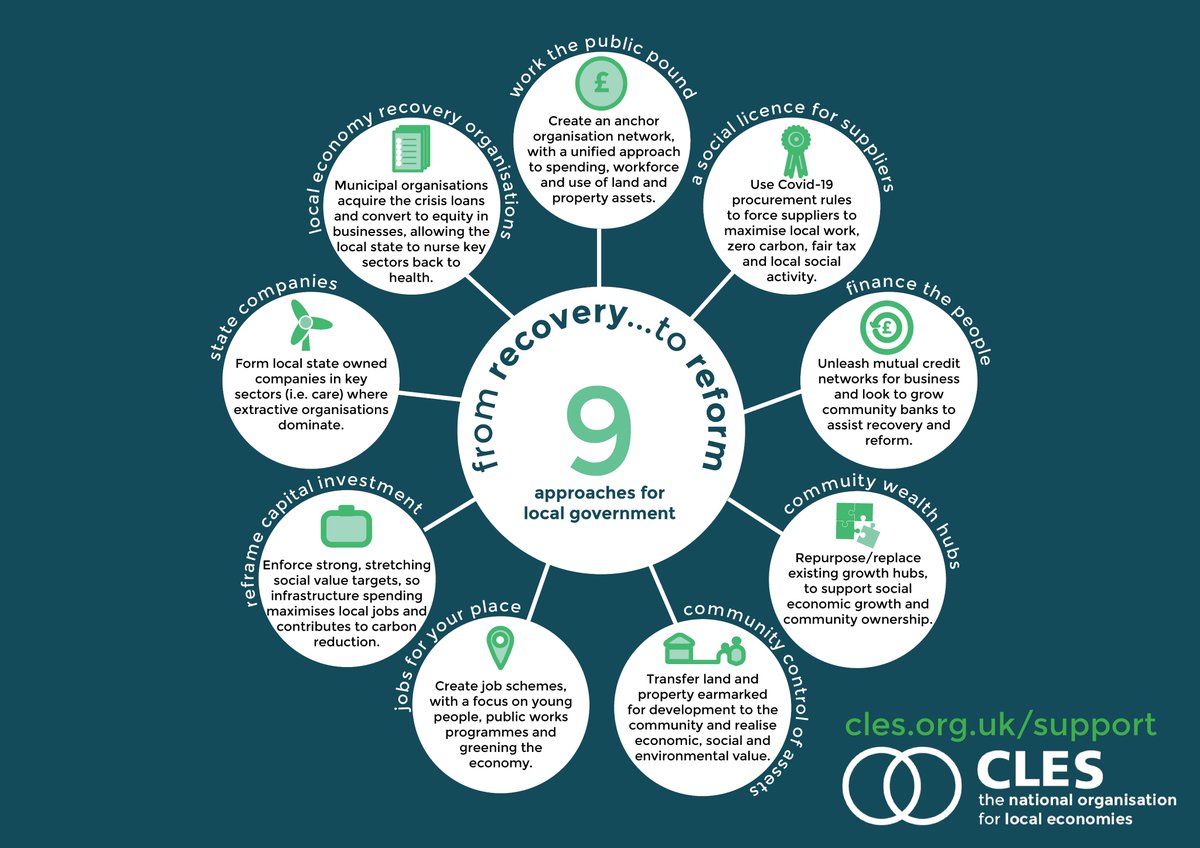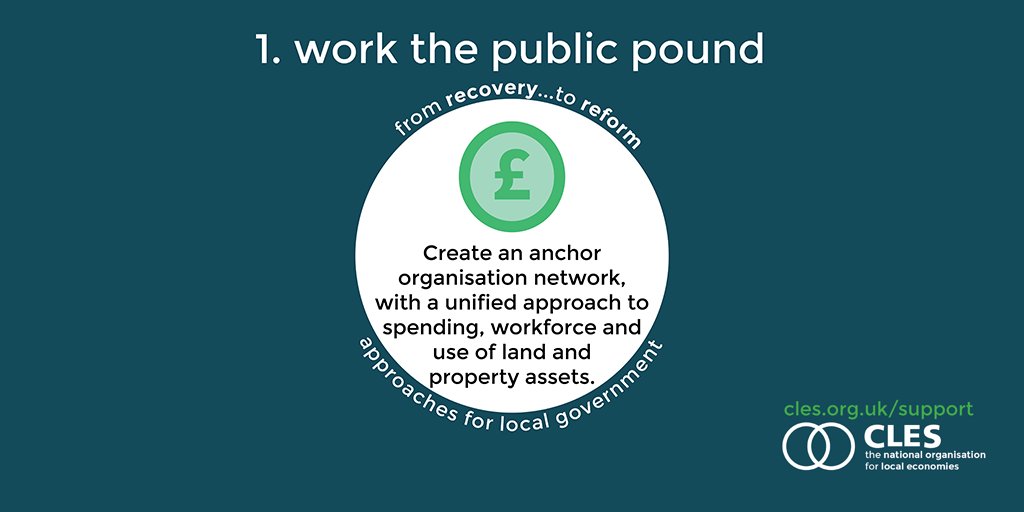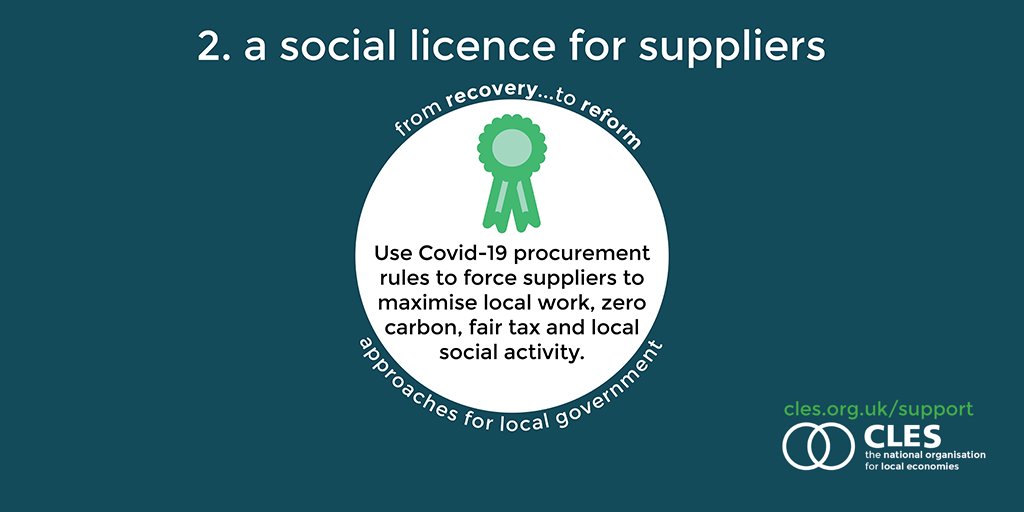Local/regional/devolved govts need to lead the effort to build a new economy. Many are already engaged in progressive local economic development and #CommunityWealthBuilding.
Here are our 8 priorities for administrations to deepen the approach as they get to work after #LE2021🗳️
Here are our 8 priorities for administrations to deepen the approach as they get to work after #LE2021🗳️

1⃣ Focus on wellbeing, not GDP
We need an inclusive economy in which greater consideration is given to the social benefits that flow from, and feed into, economic activity, as @nmcinroy and @DavidB_CLES wrote, back in 2018 👉ow.ly/2pVI50EHinF

We need an inclusive economy in which greater consideration is given to the social benefits that flow from, and feed into, economic activity, as @nmcinroy and @DavidB_CLES wrote, back in 2018 👉ow.ly/2pVI50EHinF


2⃣ Support local finance
Rather than attempting to attract national or international capital, community wealth building provides a the mechanisms to increase flows of investment *within* local economies – case studies here 👉 ow.ly/2JcL50EHir4

Rather than attempting to attract national or international capital, community wealth building provides a the mechanisms to increase flows of investment *within* local economies – case studies here 👉 ow.ly/2JcL50EHir4


3⃣ Recognise public spend as an opportunity
Public expenditure must return to public values in order for it to be harnessed to greater social, economic and environmental value, as we wrote in this provocation released in the wake of the first wave👉 ow.ly/l9BB50EHiCv

Public expenditure must return to public values in order for it to be harnessed to greater social, economic and environmental value, as we wrote in this provocation released in the wake of the first wave👉 ow.ly/l9BB50EHiCv


4⃣ Jobs for your place
Job schemes must be ramped up, targeted and supported through economic/industrial strategies.
But this isn’t just a job for local gov.
Case study➡️@ubhtrust, using targeted training to solve problems in their labour market: ow.ly/g7uw50EHk1Q

Job schemes must be ramped up, targeted and supported through economic/industrial strategies.
But this isn’t just a job for local gov.
Case study➡️@ubhtrust, using targeted training to solve problems in their labour market: ow.ly/g7uw50EHk1Q


5⃣ Put land back in the hands of people
The value associated with land should work for people, not against them.
We’ve been working with @LpoolCityRegion on the UK’s first land commission framed by #communitywealthbuilding👉ow.ly/9p4I50EHk5m (report due next month)

The value associated with land should work for people, not against them.
We’ve been working with @LpoolCityRegion on the UK’s first land commission framed by #communitywealthbuilding👉ow.ly/9p4I50EHk5m (report due next month)


6⃣ Reshape business support
Growth hubs and business support (often) don’t adequately support the SMEs, community businesses, co-operatives and social enterprises that you need to build a healthy local economy.
But there is another way👉ow.ly/cPqk50EHkaq

Growth hubs and business support (often) don’t adequately support the SMEs, community businesses, co-operatives and social enterprises that you need to build a healthy local economy.
But there is another way👉ow.ly/cPqk50EHkaq


7⃣ Weave regeneration spending into transformation
Communities deserve the best value possible out of regeneration.
Here we argue that the #LevellingUpFund *can* be used develop an approach where wealth is brought closer to home👉cles.org.uk/publications/m…

Communities deserve the best value possible out of regeneration.
Here we argue that the #LevellingUpFund *can* be used develop an approach where wealth is brought closer to home👉cles.org.uk/publications/m…


8⃣ Reimagine the function of retail centres
High streets have changed, we need to change our thinking about what they are for.
@powertochange have argued powerfully for this and we see distinct possibilities in the culture and night time sectors👉cles.org.uk/blog/post-covi…

High streets have changed, we need to change our thinking about what they are for.
@powertochange have argued powerfully for this and we see distinct possibilities in the culture and night time sectors👉cles.org.uk/blog/post-covi…


• • •
Missing some Tweet in this thread? You can try to
force a refresh

















